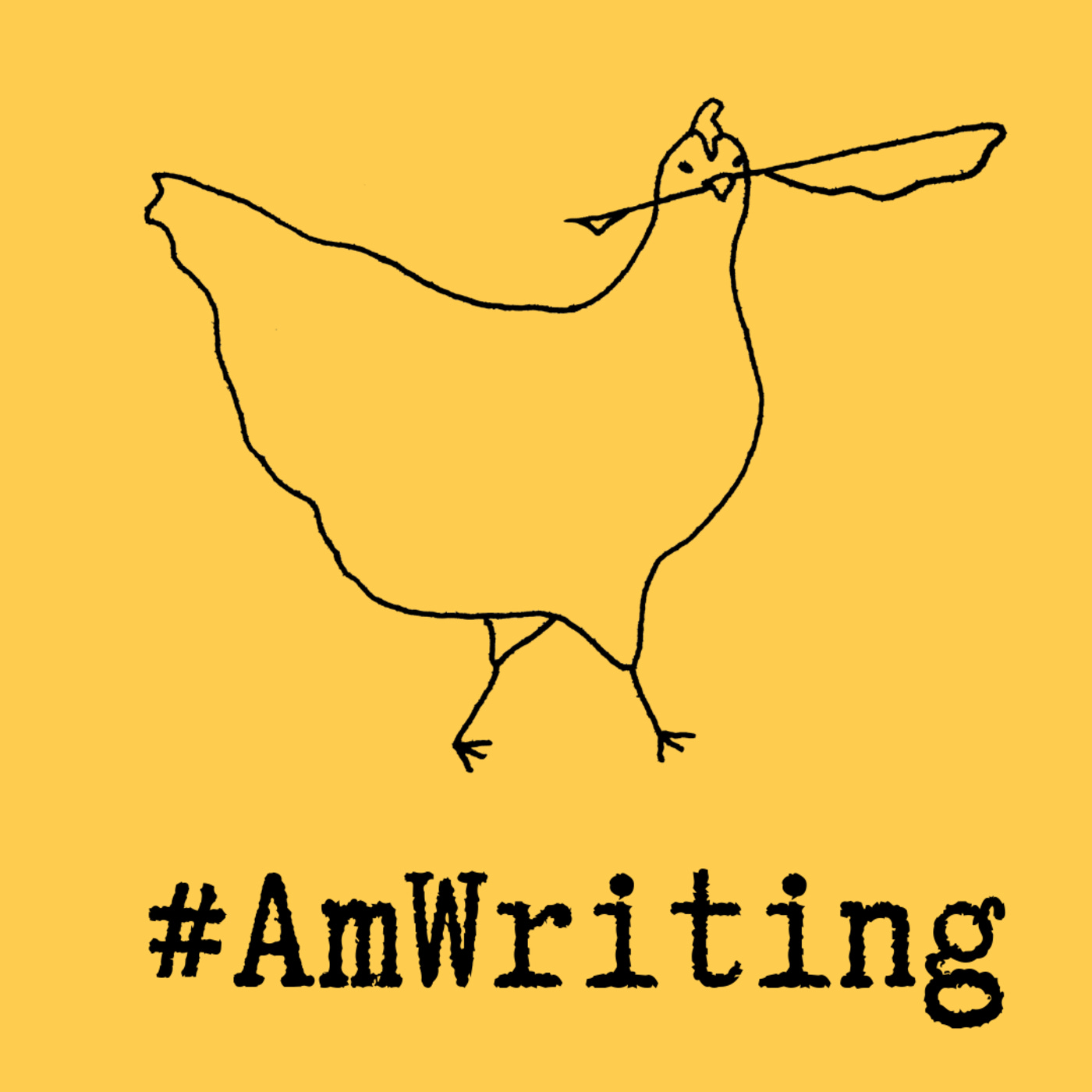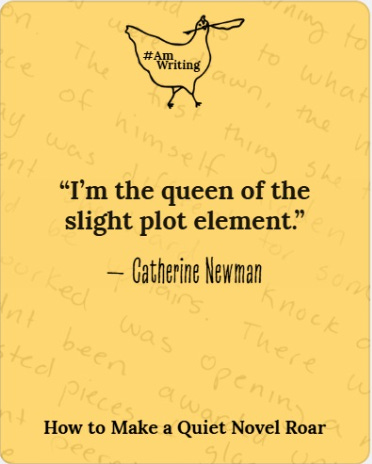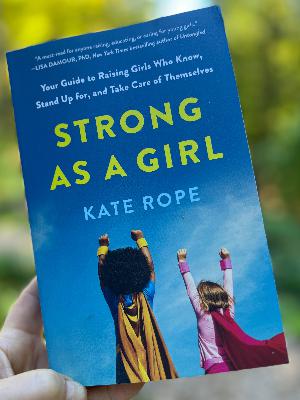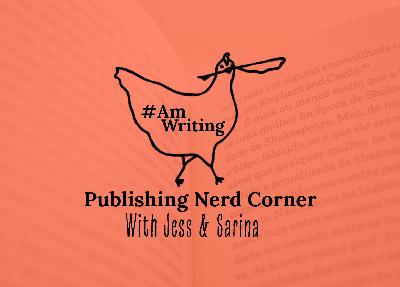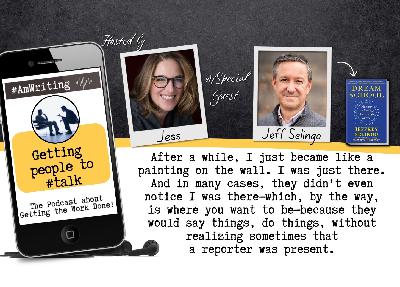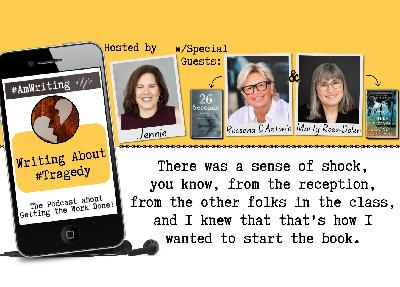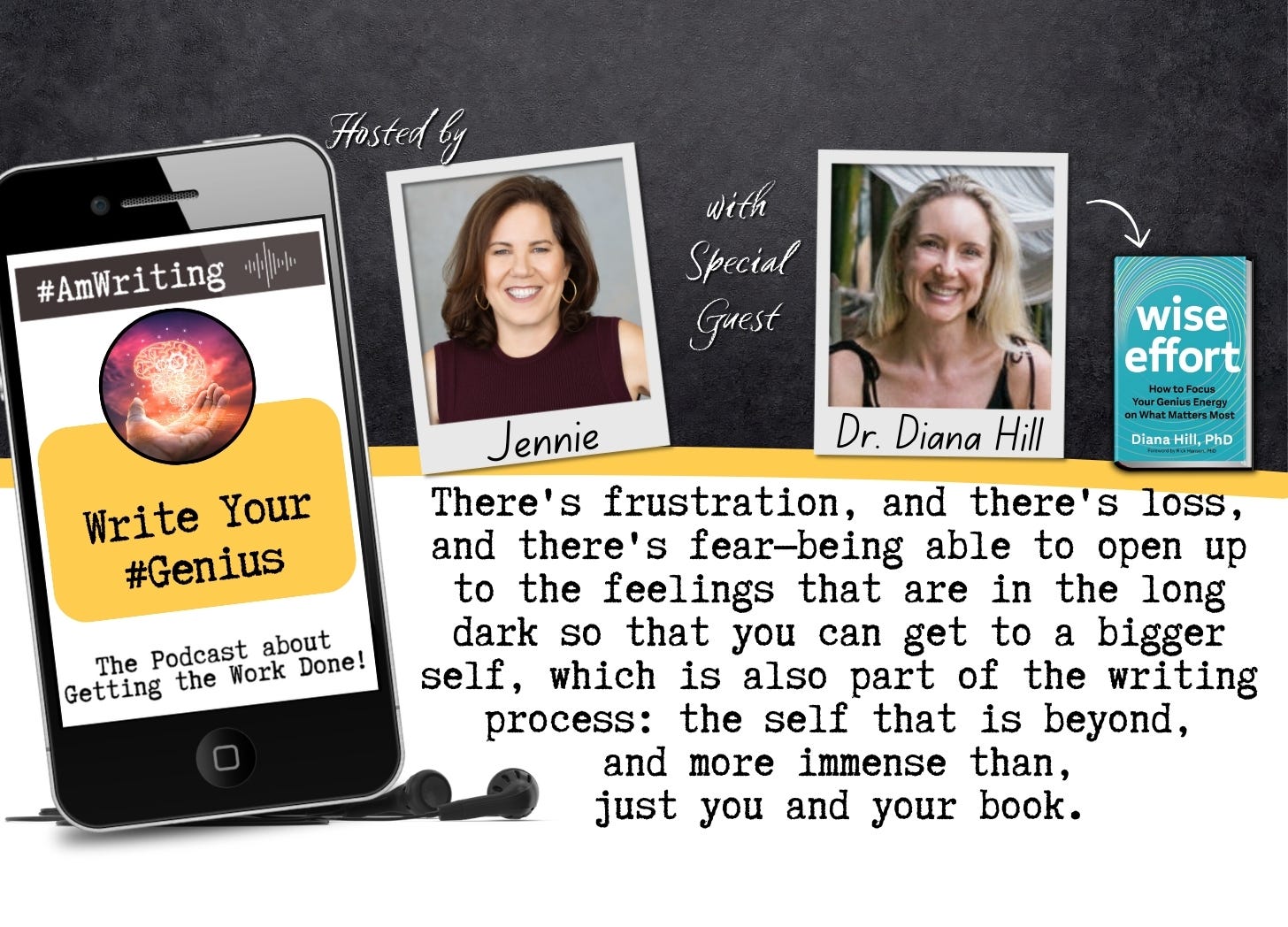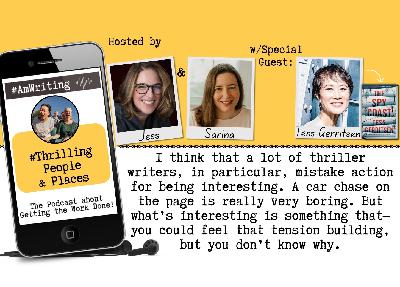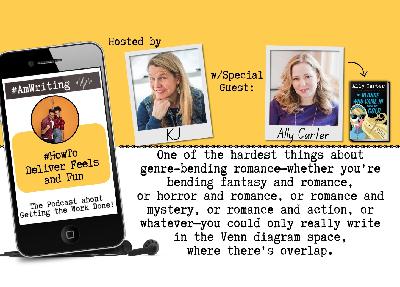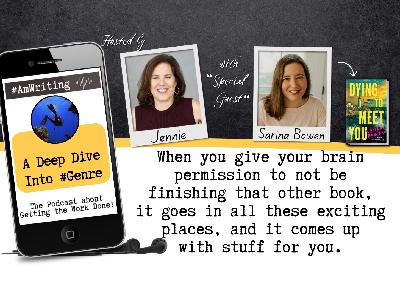Trusting Your Gut with Mary Laura Phillpot (Ep 5)
Description
In this #amwriting podcast Write Big session, Jennie Nash talks with author Mary Laura Philpott about the surprising choice she made after her acclaimed book Bomb Shelter—to stop writing on purpose. Mary Laura shares how, after pouring everything into that project, her gut told her she didn’t need to rush into another, despite the pressure of “what’s next?” from the industry and readers. This conversation reframes writing big not as chasing ambition, but as honoring your gut and giving your whole heart to whatever season you’re in—even if that means not writing at all.
TRANSCRIPT BELOW!
THINGS MENTIONED IN THIS PODCAST:
* Mary Laura Philpott’s website
* The New York Times Review
SPONSORSHIP MESSAGE
Hey, it’s Jenny Nash, and if you’ve been writing a new book through the month of November and wondering if it’s any good, this might be the perfect time to work with an Author Accelerator certified book coach to get a professional gut check. Eighty-six of our certified coaches are offering a Black Friday special. For just $299, you get a mini blueprint strategy session, which includes a one-on-one call, some feedback on your pages, and the kind of insight and inspiration you need to write forward with confidence. Visit https://www.authoraccelerator.com/black-friday to find the book coach who’s a perfect fit for you.
EPISODE TRANSCRIPT
Jennie Nash
Hi, I’m Jennie Nash, and you’re listening to the Hashtag AmWriting Podcast. This is a Write Big Session, where I’m bringing you short episodes about the mindset shifts that help you stop playing small and write like it matters. Today, I’m talking to Mary Laura Philpott about the idea of trusting your gut. This is a critical component to writing big, and I asked Mary Laura to come speak to us because a very interesting thing happened to her after the publication of her second book, Bomb Shelter: Love, Time, and Other Explosives. This book is so good. It’s a book about being a parent and a daughter and a spouse and a person in the world. And what happened was that she stopped writing—on purpose. Her gut told her, “I’m done now.” And it struck me that if we could understand what makes a successful writer choose not to write; maybe we could understand better what makes us each choose to write big. So welcome, Mary Laura.
Mary Laura Philpott
Hello, friend. Thanks for having me.
Jennie Nash
Ah, I’m so excited to have this conversation. I’ve been wanting to have it for a very long time.
Mary Laura Philpott
Oh, good.
Jennie Nash
So thanks for joining us. This is maybe your second, third, fourth time on the Hashtag AmWriting Podcast—you’re a fan favorite. So welcome back. To set this conversation up, I’m going to read a little snippet from The New York Times review of Bomb Shelter, which was written by Judith Warner, and in which she called your book a “master work.” I’m going to read the end of her review, because it really sets up this question that we’re going to be talking about.
So she writes: “I want to say something negative about this book. To be this positive is, I fear, to sound like a nitwit. So to nitpick—there’s some unevenness to the quality of the sentences in the final chapter—but there’s no fun in pointing that out. Philpott already knows. I’m telling this story now in present tense. She writes, ‘I’m still in it, not yet able to shape it from the future’s perspective. The story is still being written, and that’s all right. The only problem is having to wait to read what comes next.’”
So—you wrote this book, which was your second book…
Mary Laura Philpott
Second book of this type—yes, kind of second, second memoir.
Jennie Nash
Second book of this type. And you get this beyond rave review in The New York Times by this luminary reviewer, in which she says, “I can’t wait to see what you write next.” And here we sit some years later, in which the answer is—there is nothing next. So can you talk about that? Can you talk about how you—first of all, what that feels like?
Mary Laura Philpott
Yeah, it’s—I mean, you know this feeling of before a book is even on shelves, people are already asking, “So what’s next? Like, what are you working on?” You know? And then you go on tour, and every question everywhere is, “So what are you working on now?” There’s this relentless, kind of—this churning wheel of productivity behind it all. And so I’m used to that, and I was used to that feeling of, okay, the book is out, people are talking about it, but I need to be working on something next, because that’s always been how it is. But I was tired. That was a really—I love that review so much, and I love the way this book was received—but it was a really emotional book to write, and it was a really emotional book to tour with and go out and talk about for several weeks on end. And so when I came back home, I was like, you know, I get to decide how this little hamster wheel of productivity goes—and I have decided I need a break, and I’m going to focus on, you know—I had, like, one or two years left with my kids at home before they left the nest. I was like, I’m just going to be at home. I’m going to focus inward. I’m just going to be kind of living life on my own terms. And I did that for about a year—and then another year—and now it’s been... let’s see... here we are in 2025... It’s been three years since that book came out. I have not written another book, and I have never been so calm about not being in the middle of writing another book. It just feels like I don’t have something I urgently need to say.
Jennie Nash
Yeah.
Mary Laura Philpott
And I also feel—there’s something rebellious in the beginning about saying, “I’m not going to do it.” But once the rebellion kind of burns off and you realize, actually, I don’t owe anyone anything—like, I’m not under contract for another book. I had the sort of miraculous timing of my editor for Bomb Shelter and for I Miss You When I Blink retiring right after Bomb Shelter came out, so I don’t even have an editor breathing down my neck going, “Come on, what’s your next thing?” So I’ve been experimenting with saying I’m retired. When people ask me, like, “What are you working on?” I say, “I might be retired. I don’t know if I am. It might be temporary. It might be—this might be like Ross and Rachel: are we on a break, or are we broken up? I don’t know.” But I am so calm and happy with the decision not to be getting up every day and sitting at my desk. It’s like a cord has been cut in me—and I don’t feel any guilt about it.
Jennie Nash
So you said you feel that you don’t have anything to say. When you started these books and your other books and projects, did you feel that?
Mary Laura Philpott
Always! Yes. Like, I—for myself and for other people—like, I need to get this on paper. There’s that therapeutic part of writing: I need to get this on paper and organize it so that I can understand what it is I think. That’s not enough of a reason to go through the misery of publishing a book, but it’s something. And then there’s the other part—where you, or for me, where once I figure out what it is that I’m thinking as I’m putting it on paper, I realize there are other people who may feel this way, and translating it into words is a gift. And it’s something that I want to be able to do for readers, and I want to enter into that two-way conversation with my words and my readers. And it’s not that I don’t have anything interesting to talk about right now—it’s just that I don’t have anything keeping me up at night, begging to be translated and, therefore, you know, urging me to the page. I’ve started and stopped little—not books, but like other little projects here and there—where I’m like, oh, maybe I want to play around with this idea. And then I put them down, and I just feel... it’s honestly the first time in my life I have felt no guilt about not working on the thing that everyone thinks I should be working on. And it’s so weird because other people seem to have really strong feelings about it.
Jenn

